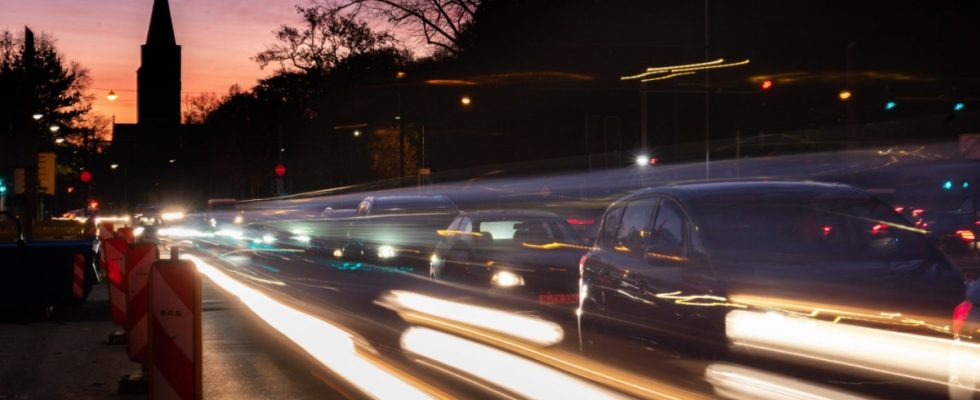After months of dispute, the leaders of the SPD, Greens and FDP have agreed on reforming the climate protection law. Representatives of the three factions announced this on Monday. Accordingly, the current law should be weakened. Unlike before, ministries should no longer be obliged to implement emergency programs if the climate goals in their area are violated. Instead, compliance with the goals should be checked “across sectors” in the future. In other words: If one sector – currently transport and buildings – misses its targets, another area that already emits less CO₂ than planned can compensate for this. “From now on, all that matters is that the climate goals are achieved overall and no longer where emissions are reduced,” said deputy FDP parliamentary group leader Lukas Köhler.
The federal cabinet had already decided on a corresponding reform in June 2023. However, the traffic light groups were unable to agree on this for a long time. The Greens in particular were worried that the amendment could weaken climate protection. In the future, the focus should no longer be on looking back – i.e. the balance sheet of the previous year – but rather on looking ahead: this should be used to examine the extent to which the current measures are sufficient to meet the climate goals.
The compromise stipulates that the federal government must explain how exactly it wants to achieve its climate goals by 2040 – and not just by 2030 as before. This would make it clearer in which areas emissions are permanently high and to what extent this can be offset by climate protection successes elsewhere. For the first time, the responsible ministers are obliged to look even further into the future – when it becomes increasingly difficult to compensate for the shortfalls in one sector in other areas due to the ever-shrinking German CO₂ budget. “Of course, the CO₂ reduction targets of the current law continue to apply at the same time,” said SPD parliamentary group vice-president Matthias Miersch, “as a result of the amendment, not a single gram of CO2 can be emitted.” The new version of the law is scheduled to go into the second reading in the Bundestag in the coming week of the session.
The current law is only five years old and was considered the greatest climate policy success of the previous government. Environmental groups have been fighting for its preservation for months. They fear that climate protection will be weakened if the ministries no longer have to submit emergency programs. From the start of the discussions, the Greens and parts of the SPD also had major reservations about abolishing the sector targets. The SPD had once pushed through the law in the grand coalition.
Wissing can breathe a sigh of relief
The agreement now gives Federal Transport Minister Volker Wissing (FDP) some breathing space; he immediately welcomed the decision on Monday. His area is the furthest behind plan. Emissions from car traffic have been stagnating for four years instead of falling. It was only on Thursday that Wissing put massive pressure on the negotiators of the three factions with a warning about possible driving bans. If the new climate protection law does not come into force before July 15th, there is a risk of “widespread and indefinite driving bans on Saturdays and Sundays,” said the minister in a letter to the leaders of the traffic light factions of the SPD, Greens and FDP written. It was heard from parliamentary group circles on Monday that Wissing’s letter and the subsequent debate did not have any accelerating influence on the agreement on the climate protection law. On the contrary: “With a view to the much stricter climate target for 2040, more needs to happen, especially in the area of transport,” said the deputy group leader of the Greens Julia Verlinden.
With the agreement on the Climate Protection Act, another traffic light knot is being solved, namely the solar package. It is intended to promote the expansion of solar energy in Germany, for example by removing bureaucratic hurdles. For example, the operation of balcony power plants or the use of self-generated photovoltaic electricity in apartment buildings should become easier. It was recently controversial whether there should be a so-called resilience bonus, i.e. financial support for the domestic solar industry.
In the end, however, the sticking point with the solar package was not a substantive one: because the Greens did not want to get involved in the amendment to the Climate Protection Act for months, the FDP in return blocked this proposed law. Although the two issues essentially have nothing to do with each other, they were “coupled” to each other in order to put pressure on the other coalition partner. And now that the amendment to the Climate Protection Act has come, the path is also clear for the solar package.

